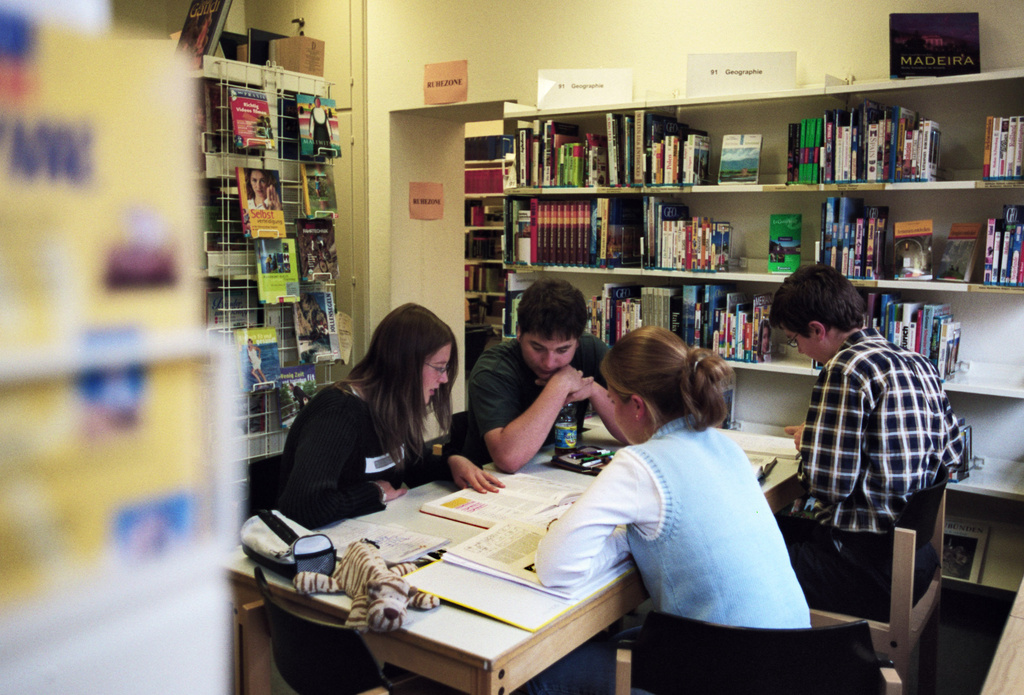
Learning to speak
Language is considered important to ensure a foreign national’s integration. But is it fair to expect everyone living in Switzerland to learn the local language?
Justice Minister Simonetta Sommaruga regrets that some foreign executives cut themselves off entirely from society, and don’t learn a Swiss language. But many top earners with international companies say learning a language and getting involved in their local community is not practical: their companies use English, and they are likely to move on after just a few years. They have little spare time and have trouble connecting with their Swiss neighbours.
Have you experienced difficulties in integration – from either side of the divide? What do you think about the language issue?
Switzerland has four national languages: French, German, Italian and Romansh. English, though not an official language, is often used to bridge the divides.
German is spoken by about 64 per cent, French by about 20 per cent, Italian by about seven per cent. Romansh is spoken by less than one per cent of the total population.
The most notable linguistic fact about German-speaking Switzerland is the use of dialect for spoken communication and standard German for written communication. French is spoken in the west of the country, while Italian is spoken in Ticino and the south of neighbouring Graubünden, and Romansh is spoken only in Graubünden. However, there are language minorities from elsewhere in all the major cities.
The three main languages are, accordingly, shared with the surrounding countries. Even Romansh is not really unique to Switzerland – there are similar Rhaetoromanic languages spoken by minorities in the South Tyrol and the Friuli region of northern Italy.
English is believed to be the language of no more than one per cent of speakers, but as a language of international communication it has taken on a major profile in recent years.
Swiss of all language groups are eager to learn it because of its importance in business. English speakers who come to Switzerland find no shortage of people who can speak English – at least in the cities. English is even coming to be used as a lingua franca between French- and German-speaking Swiss in business settings.

More
Integration reform faces state funding hurdles

More
Zurich bans locals from international schools

More
Foreign families trust Swiss boarding schools

More
Identity at stake in war of words

More
Basel tries to break down integration barriers

In compliance with the JTI standards
More: SWI swissinfo.ch certified by the Journalism Trust Initiative































You can find an overview of ongoing debates with our journalists here . Please join us!
If you want to start a conversation about a topic raised in this article or want to report factual errors, email us at english@swissinfo.ch.